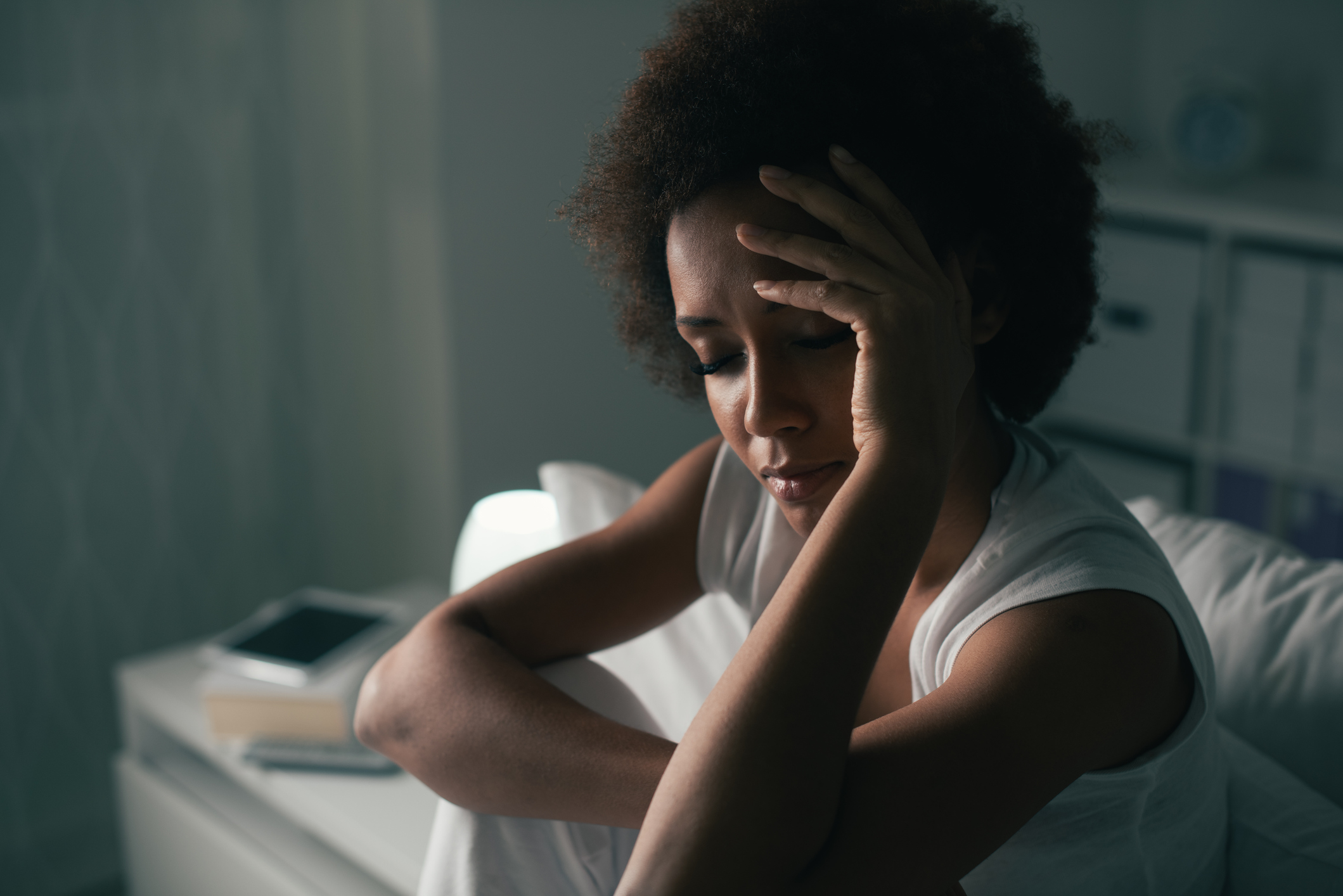Menopause and sleep: your guide to understanding the link, plus which treatments may help
Keep reading as we unpack how menopause can make it harder to catch your zzzs, plus which menopause and sleep treatments are worth your money and time


Keep reading as we unpack how menopause can make it harder to catch your zzzs, plus which menopause and sleep treatments are worth your money and time
For many of us, when we think about menopause, symptoms like hot flushes, mood swings, and weight gain instantly spring to mind. But did you know that one of the most common symptoms of menopause and perimenopause is difficulty sleeping?
In fact, around 61% of menopausal women have sleep problems, according to the National Sleep Foundation.
The good news is that if you're tossing and turning all night you don't have to put up with it. Keep reading to find out the treatments for menopause-related sleep problems that actually work. Struggling to sleep? Don't miss our guide to insomnia treatment, while you're here.
What's the link between menopause and sleep?
First up, let’s explore what causes menopause — and its associated sleep problems — to happen in the first place.
As women or people who have periods get older, their ovaries start producing less oestrogen and progesterone. These are the female hormones that regulate menstruation and their decline causes periods to eventually stop (menopause is usually diagnosed after you’ve gone twelve months without having a period).
But oestrogen and progesterone have other important effects on the brain — such as helping us to fall and stay asleep. Each of these hormones plays a variety of different roles in our sleep-wake cycle - for example, progesterone can help us relax, while oestrogen can help keep our body temperature at the level we need to drop off.
Celebrity news, beauty, fashion advice, and fascinating features, delivered straight to your inbox!
“The majority of women who are perimenopausal or menopausal have sleep disturbances, but many do not realise that these are directly related to the low hormone levels that occur,” says doctor Louise Newson, a GP, renowned menopause specialist and the founder of menopause support app, balance.
“Oestrogen levels tend to be lowest in the early hours of the morning, which is why this is a particularly bad time for many perimenopausal and menopausal women," she continues.
What causes sleep problems?
Low levels of oestrogen and progesterone can cause several symptoms that can interrupt a good night’s sleep. “Some women find it difficult to fall asleep whereas others wake many times during the night,” explains Kathryn Pinkham, founder of The Insomnia Clinic, one of the UK's only specialist insomnia services. These symptoms include:
- Hot flushes or night sweats
- Restless legs
- Heart palpitations
- Anxiety.
Pinkham explains that the night sweats are the most common trigger. “Hot flushes and the resulting bad sleep can turn our bed into a place of panic as we try to cool ourselves down,” she says. “You try and calm down and get back to sleep, but your mind is racing and you can’t drop back off.”
She continues: “The next day you feel tired and emotional and desperately crave a good night’s sleep so you can feel well rested, but at night the pattern repeats, and you feel fed up and worried about the impact this is having on you. Unfortunately, this can then become a vicious cycle.”
What kinds of treatment are there for menopause and sleep?
There are plenty of sleep aids and tips out there, from products like calming teas and sleep sprays, to sleep hygiene advice like quitting caffeine or putting away screens before bed. “The reality is that we don’t actually need any of these things to sleep well,” says Pinkham. “They can even get in the way and take the focus off something which is actually a very natural process.”
Especially if your insomnia is caused by anxiety, these “quick fixes” could make it worse, warns Kathryn. This is because the harder we try to sleep, the more anxious we can become. Trying to reframe negative thinking is also likely to make things worse, as it’s impossible to switch off our minds.
Two key medically-approved forms of treatment for menopause-related sleeplessness are cognitive behavioural therapy for insomnia and hormone replacement therapy. Let’s take a look at them in more detail.
Cognitive behavioural therapy for insomnia (CBT-i)
CBT for insomnia (CBT-i) is a kind of talking therapy and an NHS-recommended treatment. By learning tools to help manage our thoughts and take the pressure off sleep, CBT-i helps people to learn new behaviours and thought patterns that encourage a quality night’s rest. In fact, up to 80% of people experience improved sleep after treatment, according to Pinkham.
“While the reasons behind the poor sleep are different, insomnia caused by menopause follows a similar pattern to insomnia triggered by any other event,” says Pinkham. “CBT enables us to address not the trigger of the problem but the habits, behaviours and thoughts which maintain it.”
Your doctor might be able to refer you for a free course of CBT-i through the NHS, while seeing a private CBT therapist is likely to cost £50 or more a session. Another option is Pinkham's Sleep Well During Menopause online course, which is currently £225 and includes everything you would receive in face-to-face sessions.
Hormone replacement therapy (HRT)
HRT was once a source of controversy, largely due to one (now debunked) study from 2001 that suggested the treatment caused a higher risk of breast cancer. These days, it’s widely believed that the benefits outweigh any associated risks and HRT is set to become available over the counter in the UK.
What is HRT?
Essentially, HRT replaces the hormones that decline during the menopause. This means it can improve a range of symptoms, from sleep, to mood swings, to a reduced sex drive. The medication comes in a variety of forms, such as a tablet, skin patch, gel, or cream.
“The menopause is a hormone deficiency so the optimal treatment is hormone replacement,” says doctor Newson. “There are different types and doses and it is important that women receive individualised treatment. The majority of women who take the right dose and type of HRT for them find that their sleep really improves.”
4 key tips to help you sleep during menopause
1. Always speak to your doctor if you’re struggling
They’ll be happy to discuss treatment options with you and help you decide what’s best for you.
2. Don’t fall for quick fixes
As Pinkham points out, you shouldn’t need particular products or strict rules in order to get your 40 winks. It’s better to tackle the root of your sleeping problems through CBT-i or HRT.
3. Get the support you need from family, friends, and your workplace
Sleep is essential to maintain our sense of wellbeing and not getting enough of it can impact many areas of our lives.
Try this: Make sure your family, friends, and workplace are aware of what you’re going through so you can get the support you deserve.
4. Know that’s it’s completely normal
The menopause is a natural and inevitable part of every woman’s life, so know that whatever symptoms you’re experiencing, you’ll be in very good company. Thankfully, more women are starting to challenge the taboo and speak up about their own menopause experiences.
Do remember: we can all do our bit to keep the conversation going.
